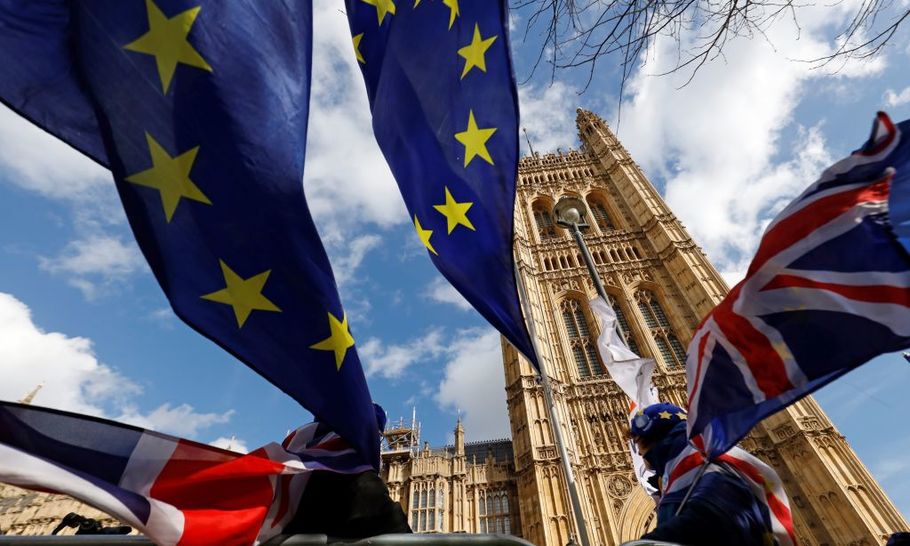A General Election won't answer the real question plaguing Britain: who are we?

TOLGA AKMEN/AFP/Getty Images)
Welcome to the 2019 General Election campaign. Prepare yourself for forty-three days of bombast, antipathy, but above all Brexit. There is only one subject in British politics, even though ministers and their shadows yearn to talk about something else. Housing policy. Benefits. Anything.
Well sorry everyone — it’s Brexit all the way.
But it won’t deal with Brexit. It will prolong it, because an election cannot put the question that the country needs to answer. An election effectively asks: “who rules?” Extraordinarily enough, that question is only of secondary significance nowadays. More pressing by far is the more challenging: “who are we?” An election will not answer that question.
Neither will it give a definitive result. In the 2017 vote, Theresa May ended up with 42 per cent of the vote and a hung parliament. The latest poll of polls tracker shows that the Conservatives are currently on 35 per cent. Johnson is a good campaigner — but he’s not that good. Add this tally to the lead the Tories have over the clapped-out looking Corbyn project and it adds up to yet another Conservative government with no outright majority.
As for Farage’s Brexit Party acting as a political crutch, it may well win a few MPs, but Johnson has ruled out an electoral pact with the BP and a parliamentary deal is unlikely. In Parliament, the Faragists will almost certainly call for “no-deal” which could have some appeal on the hard right of the Conservative party, and may even lead to defections. But it’s unlikely to have any serious effect. Johnson won’t have a majority anyway, and his decision to restore the whip to ten of the 21 Tory MPs expelled last month suggests that he sees the value of his political centre.
But whichever way he tacks, to the right or the centre, the numbers are inescapable. Unless he can find another ten points from somewhere, an election will land Johnson right back where he started. Which leads to the question of why he’s so keen to call it in the first place. Perhaps he and Cummings — both creatures of the campaign trail — think a “Parliament vs the People” strategy will chime with the current mood of angry exhaustion. But this overlooks the many angry and exhausted voters who have been made that way by Johnson himself.
And besides, what could be more preposterous than running a “Parliament versus the People” election strategy, when the British electoral system specifically consists of the public voting for Members of Parliament?
It’s an absurd idea, but one that suits the paradoxical character of Johnson’s position very well. So far he has failed in everything he’s tried, and yet his opponent all along has been the very political structure on which his own power rests. The core strength of the British political system is its calculated vagueness. There are tens of millions of voters in Britain, and no single political party can hope to please them all, or even a majority of them. The party system is designed with this in mind. It’s a mechanism for negotiation and compromise, in which all sides have to tone down their expectations and understand that they will get a bit of what they want, but not all of it.
And along comes Johnson, trying to ram a binary political decision through a system that in its very essence is both a product and an engine of compromise. Only monarchs and despots can trample their political structures into the mud. Johnson is neither of those things. Seen in such a way, the whole Brexit process starts to look something like a category mistake.
I have a good deal of sympathy for Leavers. They voted for something that the political system cannot deliver. Some of them, the PM included, reckon a general election will give them a solution, but it won’t. They’re going to be very annoyed when they find that out. The Conservatives may even, to their horror, find themselves on the wrong end of a Lib Dem surge (though here my colleague Olivia Utley pours cold water on that possibility.)
But when it comes to Brexit and to this country’s relations with the rest of the world, the election will change nothing. It will not settle the question of Britain’s true identity, and it will not bring any progress on Brexit. Only a second referendum can do that.





